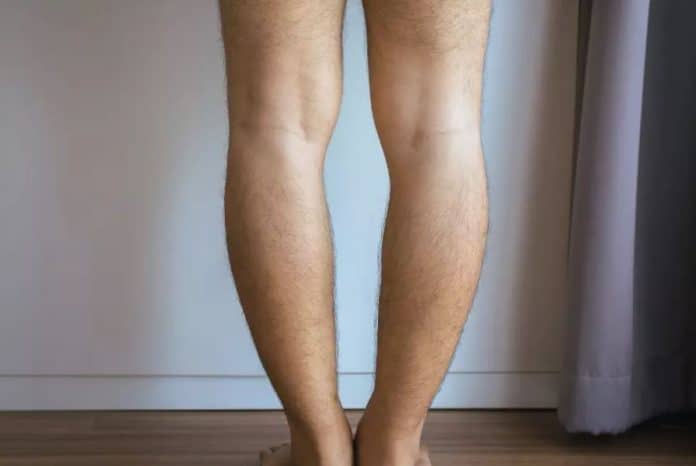Bow legs, known medically as genu varum, is a condition characterized by outward curving of the legs, creating a noticeable gap between the knees when standing straight.
While it’s more commonly addressed in childhood, many adults also seek ways to correct or improve this condition. Let’s explore effective strategies and exercises aimed at adults looking to alleviate the effects of bow legs.
Understand your condition
Before diving into corrective measures, it’s crucial to understand the cause of your bow legs. Factors range from genetics and untreated childhood bow legs to vitamin deficiencies and bone diseases.
Consulting with a healthcare provider can offer insights into your specific situation and whether corrective surgery is a recommended option.
Strengthen and stretch
Focusing on exercises that strengthen and stretch your lower body can help improve muscle balance and posture, potentially reducing the appearance of bow legs.
Hamstring curls: Strengthening the back of your thighs can support better leg alignment. Use a resistance band or leg curl machine for this exercise.
Calf raises: Strong calves can support the alignment of your legs. Stand on the edge of a step and raise and lower your heels.
Adductor stretches: Stretching the inner thighs can help if tightness in this area is pulling your legs outward. Try sitting with the soles of your feet together and gently pressing your knees down.
Practice good posture
Improving your overall posture can also help manage bow legs. Pay attention to how you stand and walk, and try to keep your weight evenly distributed. Yoga and Pilates can be beneficial for building core strength and enhancing postural awareness.
Consider physical therapy
A physical therapist can tailor an exercise and stretching program to your needs, focusing on improving your leg alignment and reducing the gap between your knees. They can also provide guidance on using braces or shoe inserts, which, in some cases, can help correct bow legs in adults.
Surgery: A last resort
For severe cases, surgery might be considered to correct bow legs in adults. Procedures can range from osteotomies (realigning bones) to guided growth surgeries.
These options should be discussed thoroughly with an orthopedic surgeon to understand the risks and benefits.
While completely correcting bow legs in adults without surgery can be challenging, implementing these strategies can significantly improve your comfort, mobility, and quality of life.
Remember, every body is unique, and embracing your differences while taking steps to enhance your health and well-being is what truly matters.














